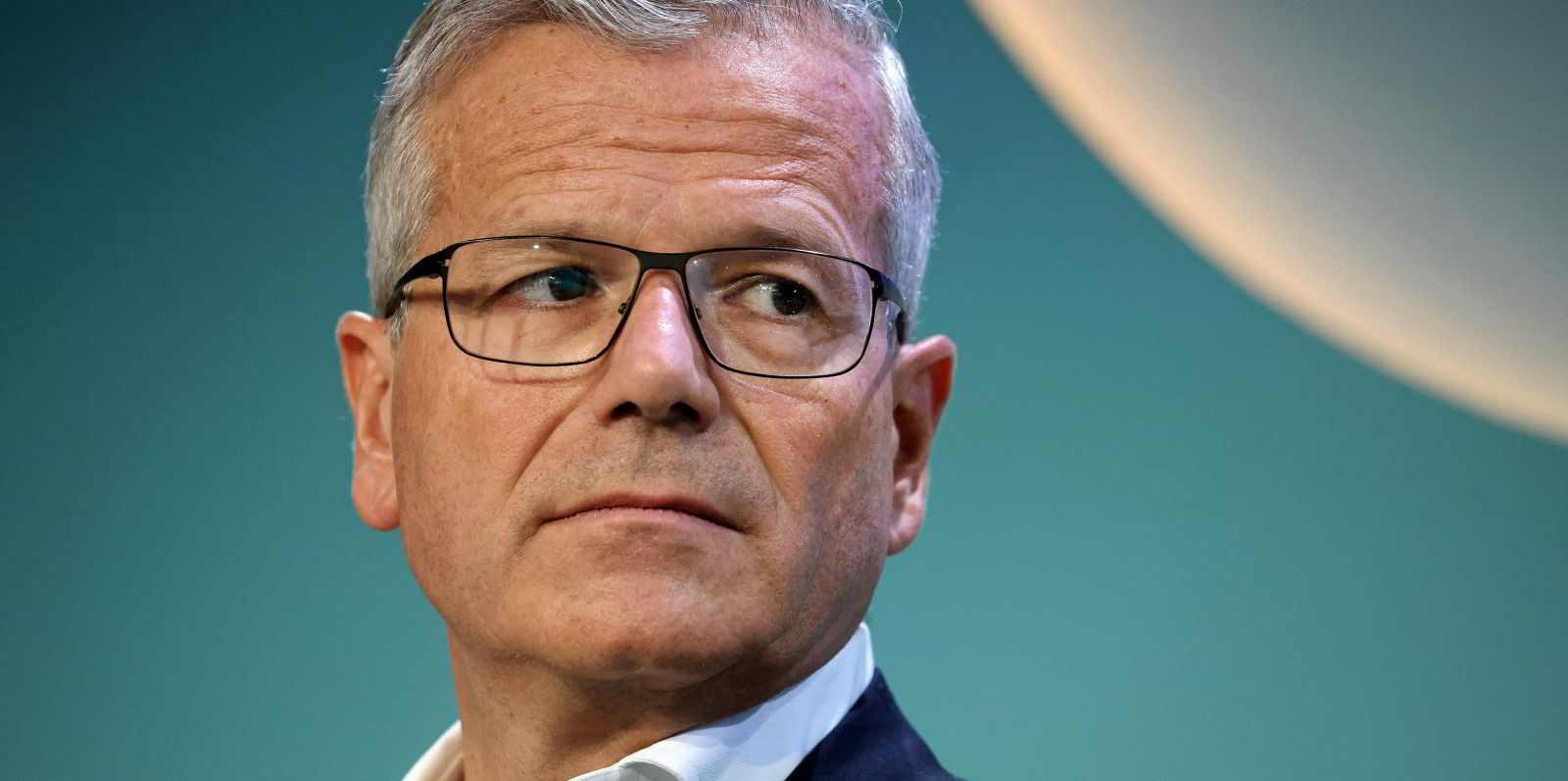Danish owner AP Moller-Maersk says first-quarter profit was as expected, but the likely prolonged Red Sea disruption has caused a major shift in its earnings forecast for the year.
Net profit was down at $208m from $2.3bn in the same period of 2023 as markets fell from record highs.
However, Maersk is planning for the rerouting of ships around South Africa due to Houthi attacks that could continue throughout 2024.
This, coupled with what it called a “strong container market”, caused the container line to boost the bottom end of its Ebitda guidance for 2024.
The estimate is now between $4bn and $6bn, compared with between $1bn and $6bn previously.
But Maersk still expects vessel overcapacity to prevail, implying lower rates during the second half.
The group noted increasing box volumes, while rates continued to be under pressure compared with the previous year.
Revenue was $12.4bn, down from $14.2bn, due to the worse result at the Ocean division, which operates the container ship fleet.
Ebitda was down $2.4bn to $1.6bn year on year.
“Ocean results increased sequentially given the strong volumes and tightened rates impacted by the Red Sea/Gulf of Aden situation but were significantly down from the previous year,” Maersk said.
“The rerouting south of Cape of Good Hope led to higher bunker consumption and higher operating costs,” the company added.
Demand moving higher
Chief executive Vincent Clerc said it had been a positive start to the year.
“Demand is trending towards the higher end of our market growth guidance and conditions in the Red Sea remain entrenched,” he added.
“This not only supported a recovery in the first quarter compared to the previous quarter but also provided an improved outlook for the coming quarters, as we now expect these conditions to stay with us for most of the year,” Clerc said.
But he does expect more new ships to be delivered this year and in 2025, eventually offsetting these factors.
The Ocean division posted Ebitda of $956m, down $2.4bn from the first three months of 2023.
Earnings before interest and tax turned negative with a $161m loss, against a $2bn profit a year ago.
Loaded volumes rose 7.5% to 2.93m 40-foot equivalent unit, due to stronger demand for Asia-Europe, North and Latin America, and Africa as well as intra-regional trades.
The average loaded freight rate dropped 18% compared with the year-ago period but was up 23% from the fourth quarter, as longer routes stretched capacity.
Bunker consumption increased 16% as a result of rerouting.
Operating costs for the fleet jumped 7% year on year.
“Efforts to reconfigure the network allowed Ocean to tackle the Red Sea/Gulf of Aden situation and improve utilisation to 95% while reliability suffered,” Maersk said.
Ocean revenue decreased by $1.9bn to $8bn.
But this was 12% up on the final three months of 2023.
Fearnley Securities agreed the results were largely in line with estimates.
But its analysts were disappointed with the guidance hike, due to the consensus on Ebitda being $5.3bn for 2024.
Fearnley viewed the forecast as “somewhat conservative”.
The investment bank expects the impact of newbuildings to be delayed, as only about 700,000 teu of new vessels had been delivered so far this year, with another 3m teu still to come.






